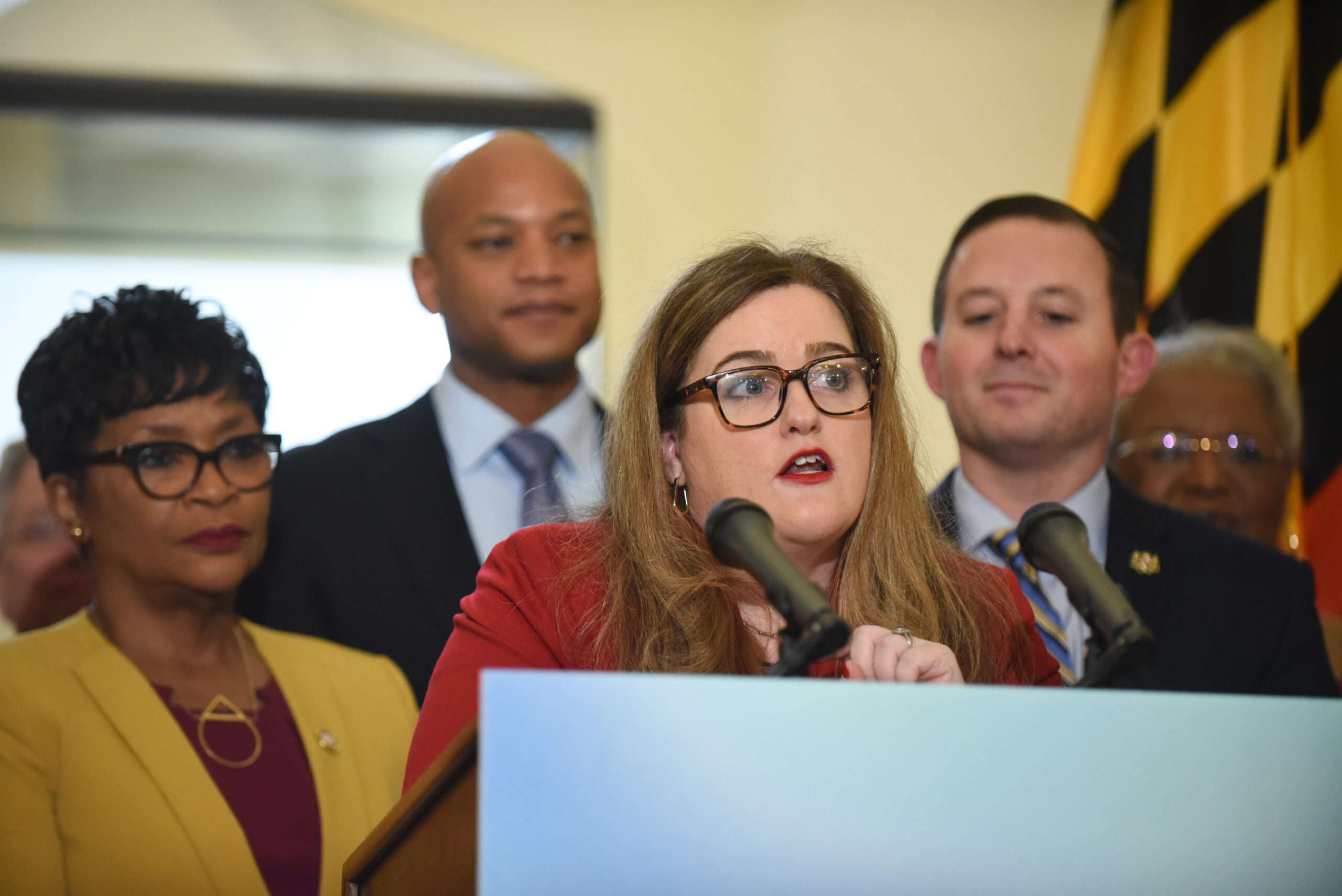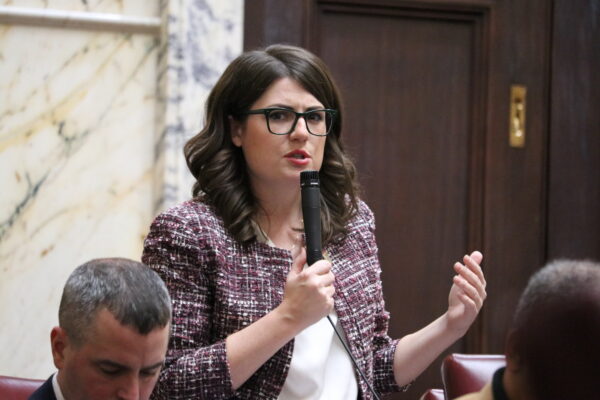Senators push bills providing state funds to boost security at abortion clinics

Two Maryland senators who support abortion rights are hoping to steer state funds to abortion clinics to bolster security measures, as clinics that provide reproductive health services see increases in threats and harassment following the 2022 overturning of Roe v. Wade.
There are two bills in the 2024 legislative session aiming to create grants that would be used to increase security personnel, add equipment and other security measures to protect the safety of providers, patients and their families. But the mechanisms to provide those protections and funds are quite different between the two bills.
The Senate Finance committee discussed both pieces of legislation during a Wednesday committee meeting.
The first bill, Senate Bill 947, is sponsored by Sen. Ariana B. Kelly (D-Montgomery) and would create the Abortion Care Access Grant Program and Fund. The grant program and funding would be administered by the Maryland Department of Health under Kelly’s bill.
“It would create a grant that improves access to abortion care. So grants for security, equipment, capital improvements, for security staffing,” she said.
The bill would utilize funds provided from a requirement in the Affordable Care Act, in which insurers collect a premium that would go towards abortion services. Excess funds would be required to be used for improving abortion care in the state.
Kelly explained: “It was required through the Affordable Care Act that insurance carriers…collect a separate premium for abortion coverage. And that that premium, which was one dollar per member per month, be completely segregated and only used for abortion care services.”
Robyn Elliott, representing the Women’s Law Center of Maryland, told the committee that if the bill passes, the Maryland commissioner of insurance would assess insurance carriers to see “how much funding was in surplus in the prior plan year, and then issue an order to move that funding over to the Department of Health.”.
The bill requires the governor to allocate $1 million for the fund through a budget amendment by Oct. 1, 2024.
Jakeya Johnson with Reproductive Justice Maryland, said that the bill is about “recognizing and addressing the threats that individual seeking abortion care face.
“Particularly in the form of harassment, intimidation and sometimes even physical harm directed at them, their providers and advocates,” she said. “Far too often these spaces become targets for harassment and violence, and an atmosphere of fear and insecurity for both patients and providers. By investing in security enhancement, we can help to deter harassment and violence, and ensure that individuals can access abortion care without fear for their safety.”
The bill also has an amendment to allow some of the grant funding to help provide abortion services for uninsured individuals or for those who do not want descriptions of abortion services to show up on insurance records.
Kelly said that portion of the legislation was intended from the start, but slipped out of the bill during the writing and filing process. The House version of the bill, HB 1412, sponsored by Del. Lesley J. Lopez (D-Montgomery), contains the language regarding abortion services for uninsured pregnant people. That bill is up for a hearing Friday at 2 p.m. in the Health and Government Operations Committee.
A different bill would create a much smaller grant fund, still aiming to protect abortion clinics from harassment.

Sen. Sarah K. Elfreth (D-Anne Arundel). Photo by Danielle E. Gaines.
SB 975, sponsored by Sen. Sarah K. Elfreth (D-Anne Arundel), would instead create a Reproductive Health Care Clinic Security Grant Program out of the Governor’s Office of Crime Prevention and Policy, and would require $500,000 in funding in the 2026 fiscal year.
The funding in Elfreth’s bill would go towards physical security infrastructure in health care clinics, but not towards additional security staffing of clinics.
“This committee is well familiar with the rising tide of violence to our reproductive health care clinics,” she said, citing written testimony that included increased instances of violence, stalking, burglaries, and arson, among other threatening behaviors.
Kelly said that she and Elfreth are working together on the bills.
SB 975 is “positioned slightly differently, but we are working together cooperatively with the same goal,” Kelly said.
The House version of SB 975, HB 1091, sponsored by Del. Joe Vogel (D-Montgomery), is up for a hearing Tuesday at noon in the Appropriations Committee.
The two bills come at a time when reproductive care is once again in the political spotlight following a recent ruling from the Alabama Supreme Court that equated frozen embryos collected through in vitro fertilization to children, amid fears and speculation over what that ruling may entail for IVF services and other reproductive health care.
Last year, Gov. Wes Moore (D) signed a package of bills that protected access to abortion services, declaring Maryland a “safe haven” for those within the state and those who come in from more-restrictive states seeking abortions.
A couple of anti-abortion advocates who testified in opposition to both pieces of legislation Wednesday believe the bills would allow the state to subsidize clinics for abortion services.
“Bill proponents are attempting to destroy reality and manufacture a crisis in order to extort additional tax-payer funding to further enrich the multi-million dollar abortion industry,” Laura Bogley, executive director of Maryland Right to Life, told the committee as she testified in opposition to Elfreth’s bill.
She said that so-called crisis pregnancy centers in Maryland have also received harassment from pro-abortion advocates.
Crisis pregnancy centers are generally clinics that aim to discourage pregnant people from seeking abortions and instead urge them to carry their pregnancies to term, but have long been scrutinized for providing misleading information to clients about abortion.
Bogley argued that if the General Assembly were to provide funds to bolster security for abortion clinics, the state “must provide equal protection under the law for pro-life citizens as well and provide equal accommodations for women who choose life.”
This story has been updated to include additional information about SB 947.




 Creative Commons Attribution
Creative Commons Attribution